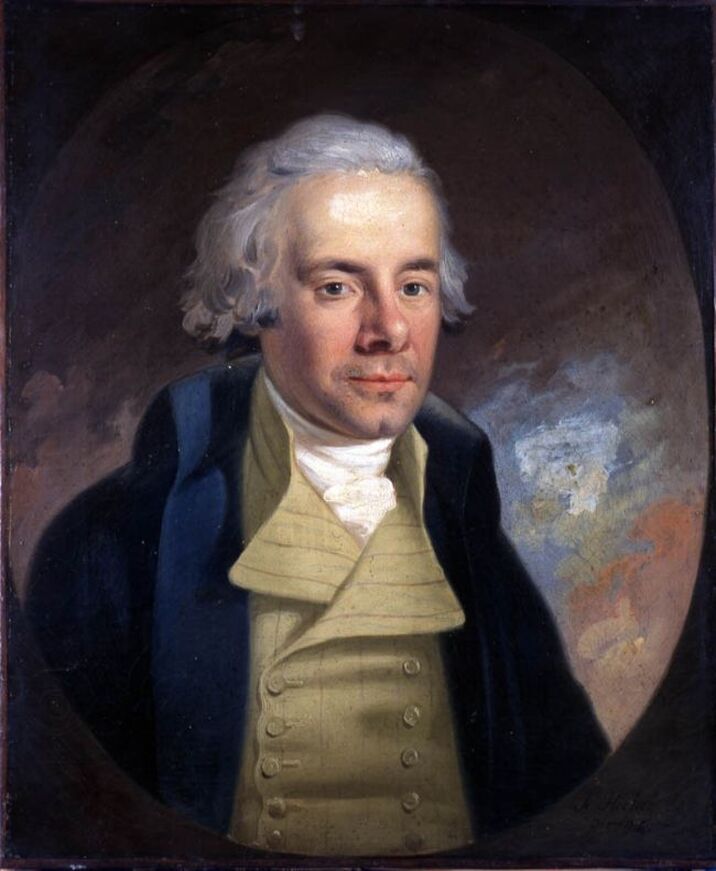William Wilberforce
|
William Wilberforce, was a British politician, philanthropist, and a leader of the movement to abolish the slave trade. A native of Kingston upon Hull, Yorkshire, he began his political career in 1780, eventually becoming a Member of Parliament for Yorkshire (1784–1812). He was independent of party. In 1785, he became an evangelical Christian, which resulted in major changes to his lifestyle and a lifelong concern for social reform and progress. He began to see his life's purpose: "My walk is a public one," he wrote in his diary. "My business is in the world, and I must mix in the assemblies of men or quit the post which Providence seems to have assigned me.” Under the influence of Thomas Clarkson, he became absorbed with the issue of slavery. Later he wrote, "So enormous, so dreadful, so irremediable did the trade's wickedness appear that my own mind was completely made up for abolition.
Let the consequences be what they would: I from this time determined that I would never rest until I had effected its abolition.” Wilberforce were defeated in 1791, 1792, 1793, 1797, 1798, 1799, 1804, and 1805. His antislavery efforts finally bore fruit in 1807: Parliament abolished the slave trade in the British Empire. He then worked to ensure the slave trade laws were enforced and, finally, that slavery in the British Empire was abolished. Wilberforce's health prevented him from leading the last charge, though he heard three days before he died that the final passage of the emancipation bill was ensured in committee. |
Quotes
|
"You may choose to look the other way but you can never say again that you did not know.”
-William Wilberforce "Accustom yourself to look first to the dreadful consequences of failure; then fix your eye on the glorious prize which is before you; and when your strength begins to fail, and your spirits are well-nigh exhausted, let the animating view rekindle your resolution, and call forth in renewed vigor the fainting energies of your soul.” -William Wilberforce "Is it not the great end of religion, and, in particular, the glory of Christianity, to extinguish the malignant passions; to curb the violence, to control the appetites, and to smooth the asperities of man; to make us compassionate and kind, and forgiving one to another; to make us good husbands, good fathers, good friends; and to render us active and useful in the discharge of the relative social and civil duties?” -William Wilberforce "Surely the principles of Christianity lead to action as well as meditation.” -William Wilberforce "It makes no sense to take the name of Christian and not cling to Christ. Jesus is not some magic charm to wear like a piece of jewelry we think will give us good luck. He is the Lord. His name is to be written on our hearts in such a powerful way that it creates within us a profound experience of His peace and a heart that is filled with His praise.” -William Wilberforce "Both man and woman have their own parts to play in bringing faith to the next generation, and the woman's role is particularly important. How can we ever think that the female sex is inferior when we see the essential responsibility God has given women in this world? Their sensitivity to spiritual concerns seems to be far more innate and natural than a man's. Mothers and wives often are the medium for our intercourse with the heavenly world, the faithful repositories of spiritual knowledge and wisdom. We should all be careful to avail ourselves of the benefits they have to offer both the present generation and the one that will follow us.” -William Wilberforce |


